Scott Preble stumbled into the Nokomis wrestling coaching gig two decades ago.
Now, it’s a position he can’t envision leaving.
“I’m just stupid,” Preble joked. “I don’t know how to quit.”
Preble is one of three central Maine coaches — along with Matt Hanley of Gardiner and Hamilton Richards of Mount View — who’ve spent 20 or more years with their respective programs.
They headline a select group of longtime wrestling coaches in the area; Scott Padelford of Madison (17 years), Shawn Shultz of Monmouth Academy (17 years) and Mike Libby of Maine Central Institute (17 years) are also close to joining the 20-year club as well.
Preble — who had a short stint as Nokomis head coach before the program was cut in 1992 — is deeply involved with wrestling in the community since its resurgence in the late 1990s.
“I really enjoy the kids,” Preble said. “I’m not involved with just the high school team, I’m involved with the middle school and the pee-wees. I organize it all. I get to see the growth of the kids from when they start, to the middle, to graduation time. You build relationships. I’ve got kids that still call me, that I’ve coached. I talk to their families when I see them about how they’re doing and the families they’ve started. To me, that’s what it is. It’s an extended family that just keeps getting bigger.”
The longtime coaches have seen plenty of changes to the landscape of Maine high school wrestling, with additions and subtractions of classes, most recently in 2016. Other changes they’ve embraced is the addition of a girls individual state championship last year and a dual meet state championship that will be soon making its debut.
But Richards — who at 26 years holds the longest tenure of any head coach in the area — said he’s witnessed his share of memorable moments and a few forgettable ones over the years, particularly at seed meetings for tournaments.
“There were a couple times I thought fist fights were going to break out (in the old days),” Richards said. “I’m not saying it was all contentious all the time, but there was much more contention (over weight classes) and much more posturing. You could tell which teams really didn’t like each other. You had guys like Teddy Heroux — the late Belfast coach from years ago — he would come with containers of gasoline to throw on the fire. If Bucksport or Camden was cranky about something, he would just find a way to make them more angry. Even if he didn’t have a kid in the weight class, he’d just do it to wind them up.”
The coaches have also noticed drops in participation numbers throughout the state, although they are quick to point out there’s been an uptick of late at some schools.
“Wrestling seems to be in a downward trend in some communities,” Richards said. “Like in Lisbon and Oak Hill, they had to combine to be one team. In the old days, Lisbon won some state championships (seven Class C titles between 2001-2010) on their own, and they were tough. They were beating Class B teams — tough B teams — and A teams like Bonny Eagle. Now, they’re struggling. But at the same time, you’ve got schools on the coast, like Camden, that is growing in enrollment.”
“Mine are coming up, but very slowly,” Preble added. “A lot of the teams are picking up, and other teams are declining a little bit. I think it’s staying the same, but I think it’s moving around.”
On the mat, the three longest tenured area coaches have also seen changes in the wrestlers. Whereas in previous years, effort and conditioning were the trademarks of successful wrestlers, current mat artists carry intelligence and skill.
“Wrestling used to be a lot harder, kids are smarter now,” said Hanley, who has been associated with Gardiner wrestling as either an assistant or head coach since 1982. “The youth systems generate top-end kids. There’s a big gap between the top-end kid in their weight class, and the second-tier kids. Because that kid is wrestling all the time, like the other sports, at least nine months wrestling, all the time. They get so much farther ahead than the kid that just wrestles during the winter time.”
Despite constant changes within the sport, there are still certain elements that remain the same for wrestlers to be successful.
“I think the mastery of the basics of wrestling is key, especially with some of the takedowns,” Richards said. “You’ll see some moves come and go. It’s kind of funny, I take a lot of notes over different techniques. I’ll go over notes from the (1990s) and be like ‘Hey, we haven’t done this move in forever.’ Then we start using it again — and nobody has seen it — and I’m like ‘Yeah, this is ancient school.’ Some of that comes and goes. I think some of the kids now are more technical. But on the other end, the basics are the basics. You’ll see certain moves come into vogue and then they’ll fade out after four or five years, then they’ll disappear for 10 and come back.”
Despite the years of service, change and occasional physical toll, the three look forward to continuing their coaching careers. In Richards’ case, he’s enjoying where the sport is going.
“I really enjoy the kids,” Richards said. “I’ve got a good group. You end up kind of like family, just close-knit, teaching the kids about life. There’s a lot of life lessons you learn in wrestling, about the value of hard work, learning from your mistakes and those types of things. The sport is enjoyable… I’ve really just been impressed with the caliber of the new, younger coaches. To me, there’s a sense of camaraderie that didn’t exist as much before.”
Dave Dyer – 621-5640
ddyer@centralmaine.com
Twitter: @Dave_Dyer
Send questions/comments to the editors.


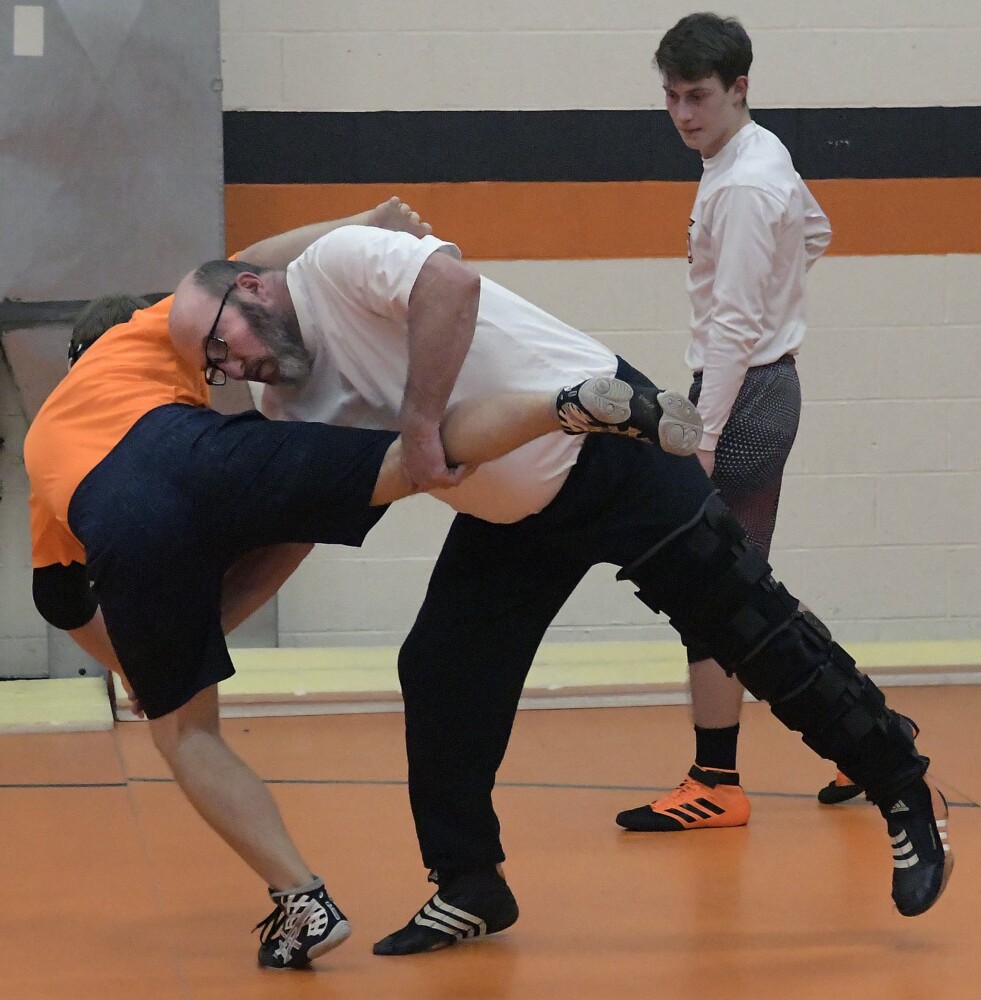

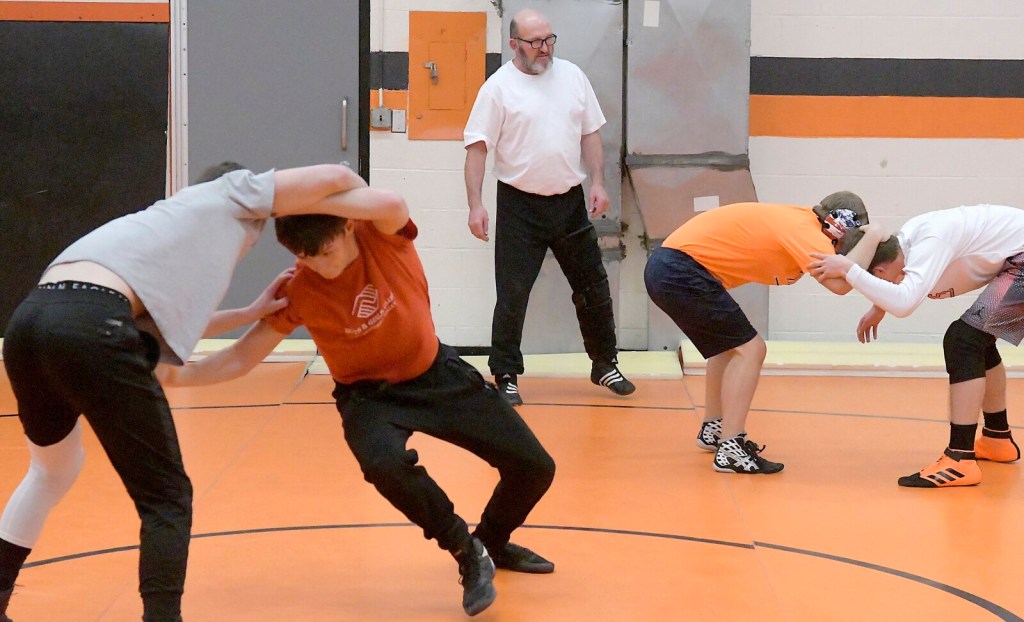

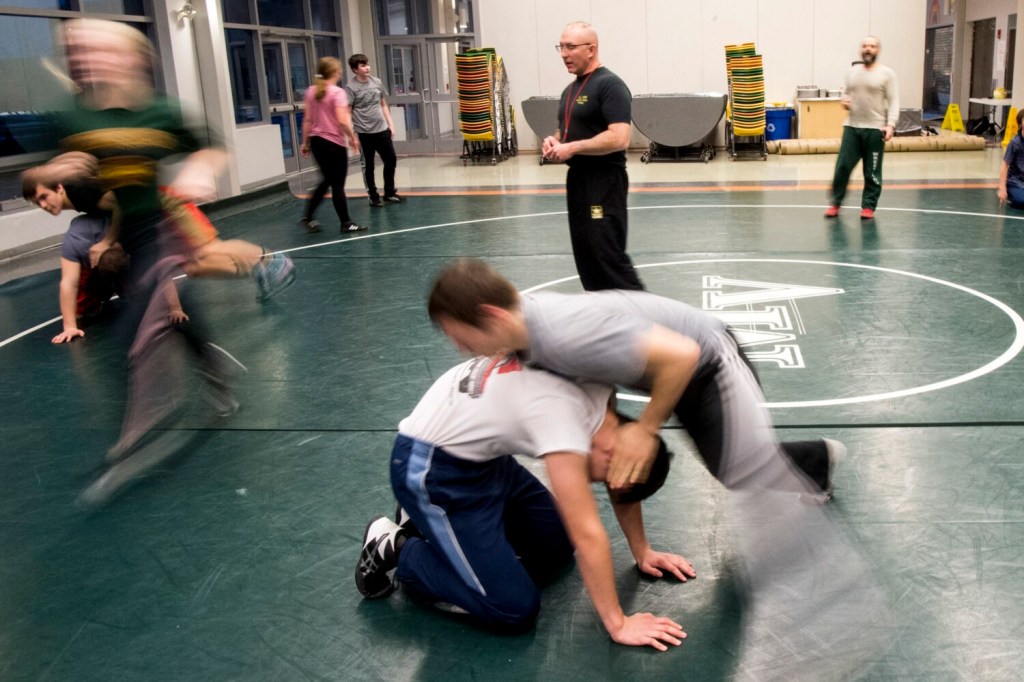
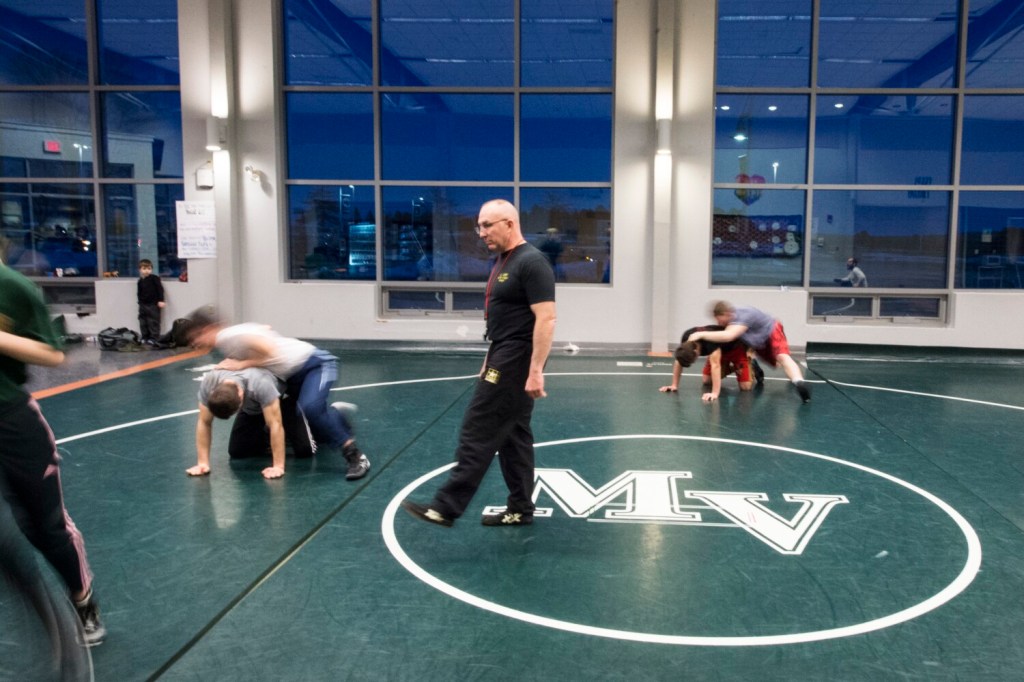

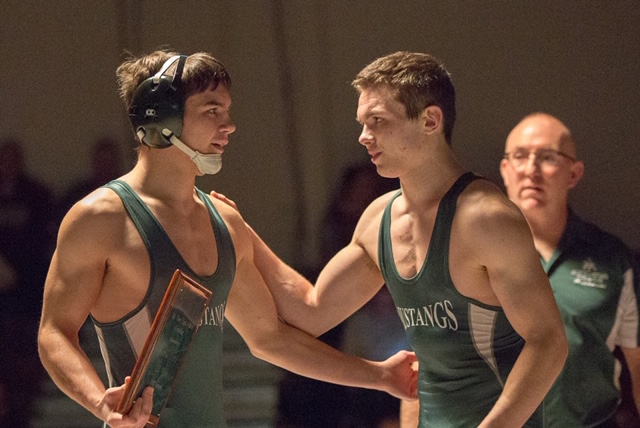
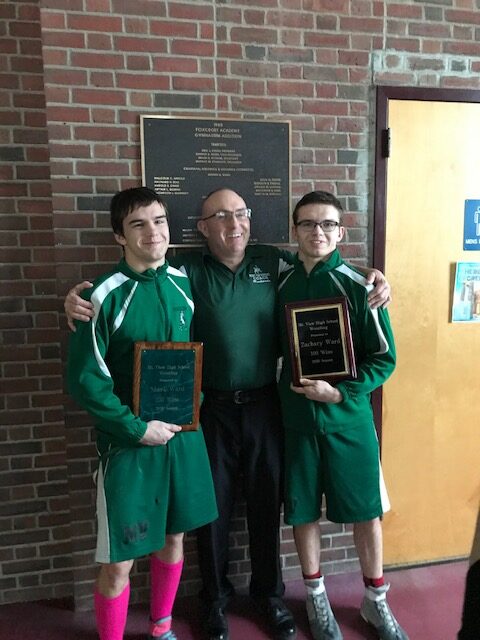

Comments are no longer available on this story